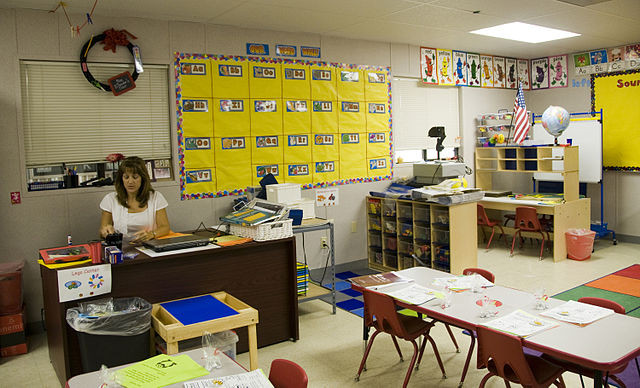The Texas State Board of Education has narrowly approved an optional Bible-based curriculum for elementary school students, igniting a fierce debate over the role of religion in public education. Known as the Bluebonnet Learning curriculum, the material incorporates Bible stories into K-5 reading and English language arts lessons. Schools that choose to adopt the state-developed curriculum will receive additional funding beginning in the 2025-26 school year.
The decision passed by a slim 8-7 vote on Friday, underscoring deep divisions among the board's 15 members. Republican Gov. Greg Abbott has endorsed the curriculum, stating it would allow students to better understand "the connection of history, art, community, literature, and religion" through pivotal events such as the signing of the U.S. Constitution and the Civil Rights Movement.
The Bluebonnet curriculum was created by the Texas Education Agency (TEA) after a 2023 law required the agency to develop optional instructional materials with religious elements. While the curriculum is not mandatory, schools that adopt it will receive $40 per student annually, with an additional $20 per student for printing costs.
Supporters argue that the material enriches students' understanding of American culture and history. "It is said that there are close to 300 common-day phrases that actually come from the Bible," said Mary Castle, director of government relations for Texas Values, a conservative advocacy group. "So students will benefit from being able to understand a lot of these references that are in literature and have a way to be able to comprehend them."
Critics, however, contend the curriculum violates the First Amendment's establishment clause, which prohibits the government from endorsing any religion. The American Civil Liberties Union (ACLU) of Texas called the decision a "flagrant disregard of religious freedom." Caro Achar, the ACLU's engagement coordinator for free speech, said, "The same politicians censoring what students can read now want to impose state-sponsored religion onto our public schools."
The curriculum has also been criticized for its heavy focus on Christianity, which some argue alienates students from diverse religious backgrounds. The material includes kindergarten lessons on the "Golden Rule" using Jesus' Sermon on the Mount and a fifth-grade poetry unit featuring Psalms alongside works by Robert Frost. Other religious traditions, such as Islam, Judaism, and Hinduism, are mentioned sparingly, and no other religious texts are included.
"As a Jewish parent, of course, we taught our kids our faith at home, and I think no matter your faith, the parents are the ones who need to be teaching those lessons," said Sharyn Vane, a Texas parent opposed to the curriculum, CNN reported. "This curriculum has explicit biblical instruction for even kindergartners."
Republican Pam Little, vice chair of the board, voted against the materials, citing concerns about their complexity for young learners. "The program's content is overwhelming, leaving little time for students to practice reading and develop critical skills like fluency and comprehension," she wrote in a social media post.
Mark Chancey, a professor of religious studies at Southern Methodist University, also testified against the curriculum. He described it as "fundamentally flawed," adding that it "makes numerous claims that are erroneous, made up, or just plain strange." While Chancey acknowledged the importance of teaching religious literacy in public schools, he argued that the Bluebonnet materials strongly favor Christianity over other faiths.
The vote has sparked emotional debates among educators, parents, and advocacy groups. On Monday, more than 100 people testified for and against the curriculum during a seven-hour board meeting. "I believe my grandkids should share our family's religion. I need help stopping the government from teaching them to be Christians," said Barbara Baruch, a Jewish grandmother.
Supporters maintain that the curriculum does not violate constitutional protections. Glenn Melvin, a proponent, argued, "Just reading some of the passages from the Bible will not cause someone to convert, as many Biblical scholars are not themselves Christian."
The controversy in Texas mirrors a broader trend in Republican-led states to incorporate religion into public education. Efforts in Louisiana and Oklahoma have included proposals to display the Ten Commandments in classrooms and mandate a copy of the Bible in every school. Last year, Texas passed a law allowing uncertified religious chaplains to serve as school counselors.
Democratic board member Staci Childs, an attorney who voted against the curriculum, suggested legal challenges are likely. "If a parent or a teacher who didn't feel comfortable teaching this were to bring this up to a court, I believe they would be successful," she said, as reported by NBC news.
The TEA defended the materials, stating they were revised after earlier criticism and designed using "the best evidence from cognitive science." Ultimately, individual school districts will decide whether to adopt the Bluebonnet curriculum, setting the stage for further debates over the intersection of religion and public education in Texas.






